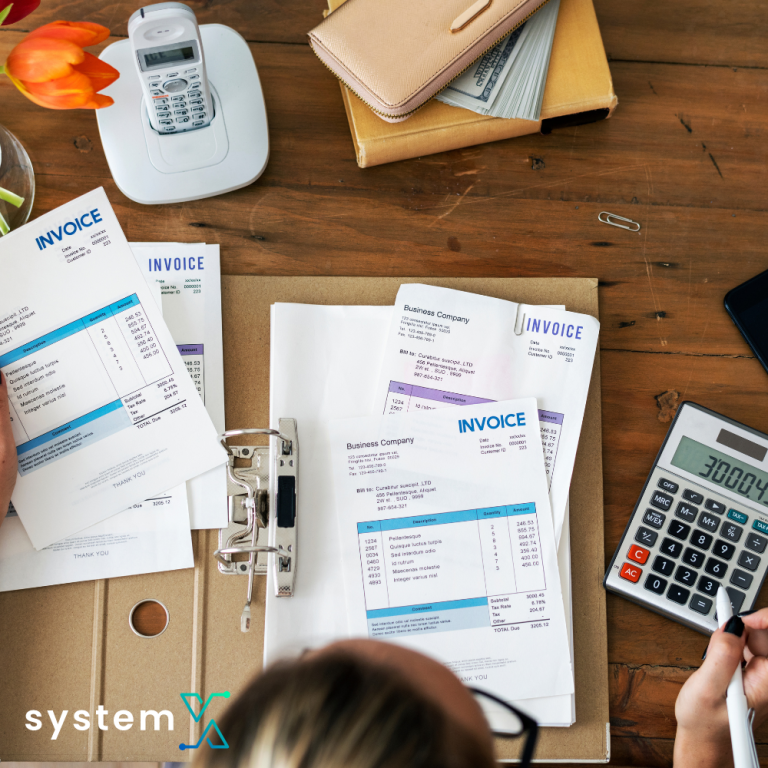An invoice number is a unique identifier assigned to each invoice a business issues. Think of it like a fingerprint for your invoices – no two are the same. This seemingly simple number plays a crucial role in the financial operations of any business, big or small. It helps track payments, manage accounts, and maintain organized financial records. Understanding invoice numbers is essential for both businesses and their clients.
This post will give you a comprehensive guide about
How An Invoice Number Is Generated
Invoice numbers are typically generated using one of several methods:
- Sequential Numbering: This is the most common method, where invoices are numbered consecutively (e.g., 001, 002, 003). It’s simple, easy to follow, and suitable for most businesses.
- Chronological Numbering: Invoices are numbered based on the date they are issued (e.g., 20230101, 20230102). This method provides a clear timeline of your invoices and can be helpful for businesses with high invoice volumes.
- Project-Based Numbering: Each project gets its own set of invoice numbers (e.g., PRJ1-001, PRJ1-002). This is ideal for businesses that manage multiple projects simultaneously, as it allows for easy tracking of project-related invoices.
- Custom Numbering: Some businesses create their own unique numbering systems, incorporating letters, client codes, or other identifiers. This can be useful for adding an extra layer of organization or personalization to your invoices.
The choice of numbering system often depends on the size and nature of the business, industry practices, and the accounting software used. Some businesses might even use a combination of methods to suit their specific needs.
Where to Find Invoice Numbers
Invoice numbers are usually prominently displayed on the invoice itself. Look for them in the header, footer, or body of the document. In digital invoices or online payment platforms, the invoice number is often included in the email subject line or within the payment details.
Within your accounting software, invoice numbers are linked to specific transactions, making it easy to track payments and manage your financial records. You can typically search for invoices by their number within the software.
The Role of Invoice Numbers in Business
Invoice numbers are more than just identifiers. They serve several critical functions:
- Payment Tracking: Invoice numbers help businesses match payments to specific invoices, ensuring accurate accounting and preventing discrepancies.
- Accounts Receivable Management: They help track outstanding invoices, identify late payments, and send reminders to clients.
- Financial Record Keeping: Invoice numbers are essential for maintaining organized financial records, which are crucial for tax reporting, audits, and financial analysis.
- Legal and Tax Compliance: Accurate invoice numbering is often required by law for tax reporting and can be important in resolving disputes with clients or suppliers.
- Professionalism: A clear and consistent invoice numbering system reflects professionalism and makes it easier for clients to reference your invoices.
Best Practices for Invoice Numbering
To ensure smooth financial operations, consider these best practices:
- Clear and Consistent: Use a numbering system that is easy to understand and follow consistently across all your invoices.
- Automation: Utilize accounting or invoicing software to automate invoice numbering, reducing the risk of errors and saving time.
- Secure Storage: Keep your invoices organized and stored securely, both physically and digitally, to ensure easy access and prevent loss.
- Unique Identifiers: Avoid duplicate invoice numbers, as this can lead to confusion and accounting errors.
- Regular Review: Periodically review your invoice numbering system to ensure it’s still meeting your needs and aligned with best practices.
Simplify Invoicing with Our Free Invoice Generator
If you’re a small business owner or freelancer looking for a hassle-free way to create and manage invoices, our free invoice generator tool is here to help. It automatically generates sequential invoice numbers, so you don’t have to worry about manual tracking.
The user-friendly interface makes it easy to create professional-looking invoices in minutes, saving you valuable time and effort. You can customize your invoices with your logo, branding, and payment terms. Plus, you can easily track invoice status and send reminders for unpaid invoices.
Troubleshooting Common Invoice Number Issues
Even with the best practices, issues can arise:
- Duplicate Invoice Numbers: This can happen if you’re not using an automated system or if there’s a glitch in your software. Double-check your records and adjust your numbering if needed. If the issue persists, consult your software provider.
- Missing Invoice Numbers: If an invoice number is missing, it could indicate a data entry error or a problem with your accounting software. Investigate the issue and correct it promptly to avoid confusion and potential disputes.
- Incorrect Invoice Numbers: Typos happen. If you catch an error, issue a corrected invoice with a new number and clearly mark the original as “void.” Inform your client of the correction to avoid any misunderstandings.
Conclusion
Invoice numbers are a fundamental element of business accounting. They play a vital role in tracking payments, managing finances, and ensuring legal compliance. By understanding the importance of invoice numbers and adopting best practices, you can streamline your invoicing process and maintain accurate financial records.
If you’re looking for a simple and efficient way to generate invoices, give our free invoice generator tool a try. It’s a valuable resource for small businesses and freelancers who want to simplify their invoicing and focus on what they do best. Remember, a well-organized invoicing system is key to maintaining a healthy cash flow and ensuring the financial success of your business.

